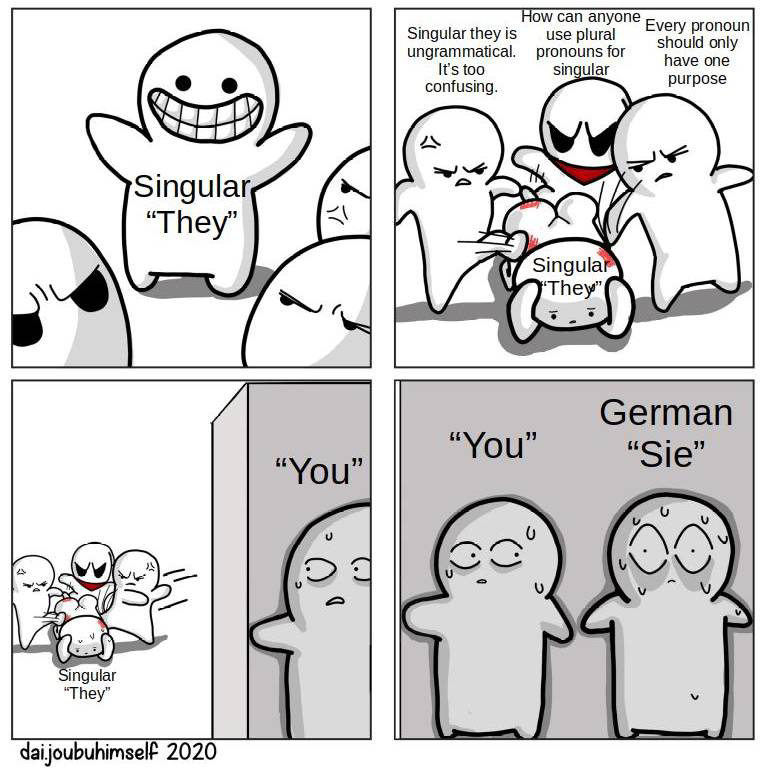this post was submitted on 24 Jul 2023
629 points (100.0% liked)
196
18686 readers
59 users here now
Be sure to follow the rule before you head out.
Rule: You must post before you leave.
Other rules
Behavior rules:
- No bigotry (transphobia, racism, etc…)
- No genocide denial
- No support for authoritarian behaviour (incl. Tankies)
- No namecalling
- Accounts from lemmygrad.ml, threads.net, or hexbear.net are held to higher standards
- Other things seen as cleary bad
Posting rules:
- No AI generated content (DALL-E etc…)
- No advertisements
- No gore / violence
- Mutual aid posts are not allowed
NSFW: NSFW content is permitted but it must be tagged and have content warnings. Anything that doesn't adhere to this will be removed. Content warnings should be added like: [penis], [explicit description of sex]. Non-sexualized breasts of any gender are not considered inappropriate and therefore do not need to be blurred/tagged.
If you have any questions, feel free to contact us on our matrix channel or email.
Other 196's:
founded 2 years ago
MODERATORS
you are viewing a single comment's thread
view the rest of the comments
view the rest of the comments

Care to give examples?
Of languages that don't have articles? Russian, Japanese, pretty sure Arabic, a majority of synthetic languages have no articles.
Japanese has no pronouns depending on what you consider a pronoun, pro-drop languages like Spanish or Italian don't use subject pronouns except for emphasis.
Chinese languages have no tense. Burmese, Malay, Indonesian, Thai, Vietnamese have no tense. Pirahã has only future tense. Japanese only has 2 tenses, one is past and one is combined present and future.
Pirahã is also debated to have no number system and no names for colors.
There's plenty of features that people who speak a language think is necessary that plenty of other languages just don't have. Languages are extraordinarily different and fluid. Word meanings shifting over time, in the case of "literally" where it starts meaning something very different is one of the most common, and gives you the words like "black" in English (which came from the same word that "white" in other languages like French or Spanish came from).
No, examples of words that mean two opposite things at the same time, since you apparently said that every single word in existence has always been that way. "Bad" comes to mind, though it's a lot easier to tell from context which meaning it has compared to "literally."
Another non-english example would be the german word "umfahren" which can mean both driving around or over something, depending on context
I have never said that every single word in existence has had 2 opposing definitions at once. I simply said all words went through the process where people think the "new" uses are confusing. And one of the most common mechanisms for that is something being used in a seemingly opposite way than its common definition. But since you asked, here's some of them: https://www.dailywritingtips.com/75-contronyms-words-with-contradictory-meanings/
And Wikipedia has a list of common contranyms: https://en.m.wiktionary.org/wiki/Appendix:English_contranyms
And some examples of words that used to mean one thing but now mean something completely different or even opposite: Every word. Lol, I'm not kidding, almost no words have ever meant the same thing over a long period of time (usually the ones that have are things like "water" or "horse" which our ancestors needed to survive over time). But some specific examples would be: Awful, Terrific, Nimrod, Trust (noun).
Semantic drift is one of the most important concepts in linguistics. It is THE REASON we have separate languages. The reason we have French and English and German and Russian as different languages is semantic drift (and phonological shifts for the pronunciation part).